What is a centrifugal juicer? And should you buy one?
They're quick and compact, but are they the ones for you?

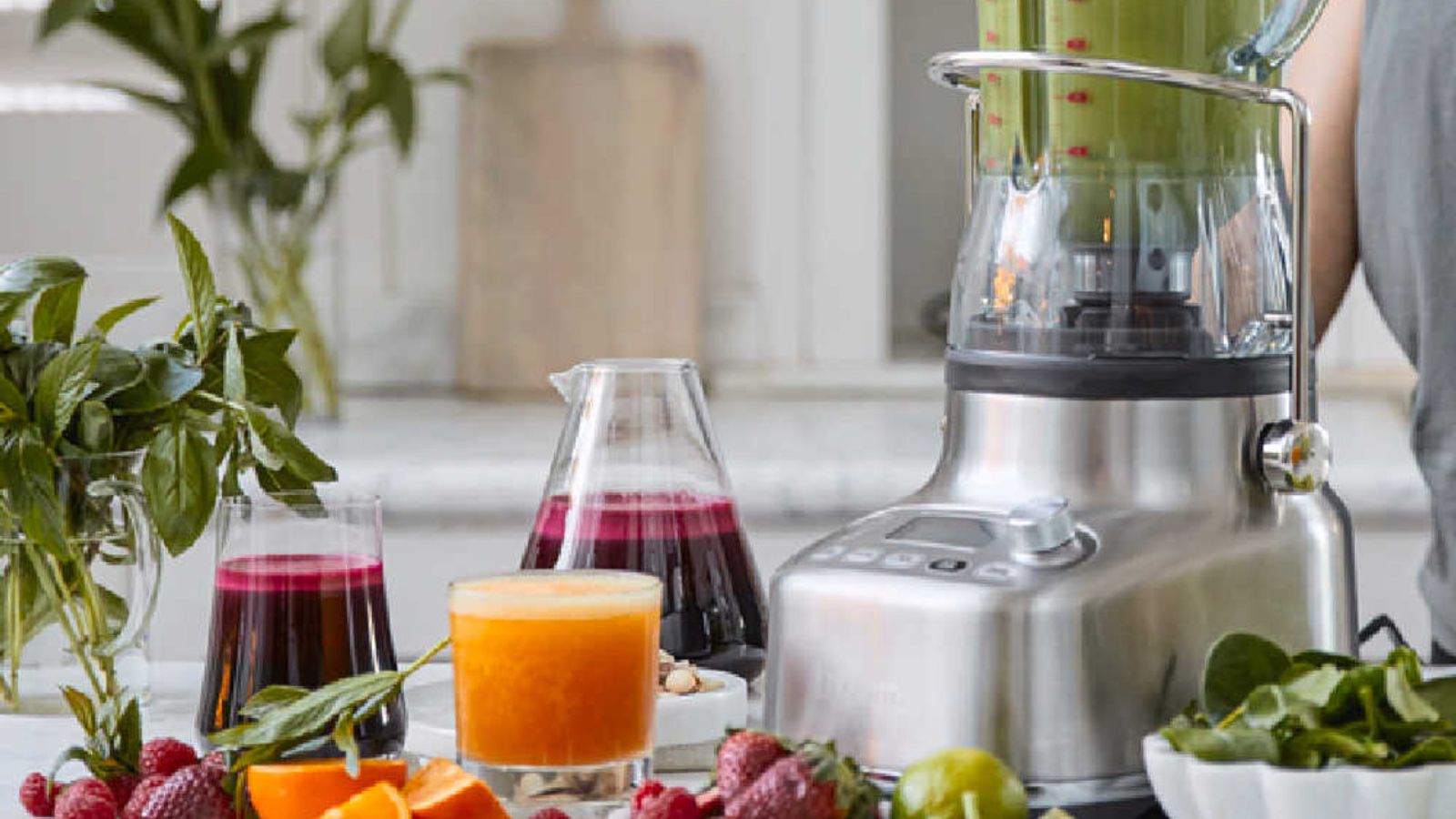
Design expertise in your inbox – from inspiring decorating ideas and beautiful celebrity homes to practical gardening advice and shopping round-ups.
You are now subscribed
Your newsletter sign-up was successful
Want to add more newsletters?

Twice a week
Homes&Gardens
The ultimate interior design resource from the world's leading experts - discover inspiring decorating ideas, color scheming know-how, garden inspiration and shopping expertise.

Once a week
In The Loop from Next In Design
Members of the Next in Design Circle will receive In the Loop, our weekly email filled with trade news, names to know and spotlight moments. Together we’re building a brighter design future.

Twice a week
Cucina
Whether you’re passionate about hosting exquisite dinners, experimenting with culinary trends, or perfecting your kitchen's design with timeless elegance and innovative functionality, this newsletter is here to inspire
What is a centrifugal juicer? And is it better than a masticating juicer? If you're in the market for a brand new juicer, you've probably asked both of those questions and more. We're here with the answers to all of them.
If you want an entry-level, speedy model, then these are some of the best juicers to invest in. They use fast-spinning metal blades to slice through fruits and vegetables. Whilst these are spun around, hence the name centrifugal, your juicer separates the pulp from the juice.
It's a simple and effective model that's loved by many, but there are five different types of juicers out there, so knowing how to choose one can be tricky. Rest assured, we'll tell you which models make the best centrifugal juicers whilst letting you know the pros and cons of them too.
What is a centrifugal juicer?
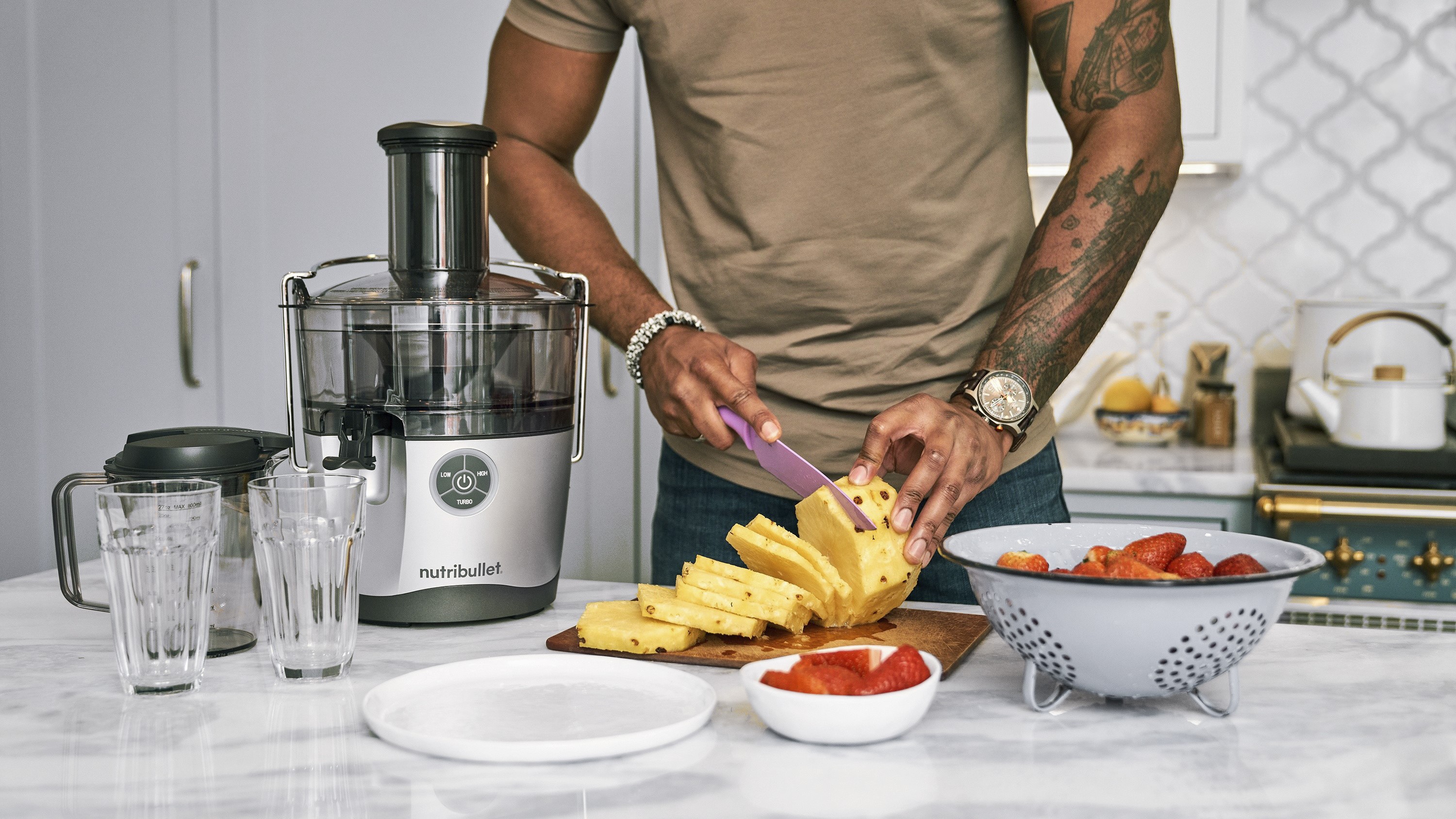
If you want the details of what a centrifugal juicer is and how it works, it won't take long to find out. Breville, the makers of one of our favorite juicers, says 'these juicers work by cutting and grinding your fruits and vegetables into tiny pieces. Then, the vessel's rotations throw the shredded food pieces to the outer sides of the vessel, along with any released juice. This force begins to push the juice through the filter and creates a separation between pulp and juice.'
They explain this centrifugal force as 'that feeling you get when you spin around on a merry-go-round. That force makes you feel like you're getting pushed away from the center to the outer edges.'
Once the ingredients have been spun around, the juicer forces the mix through a filter, which leaves you with a crisp, pulp-free juice.
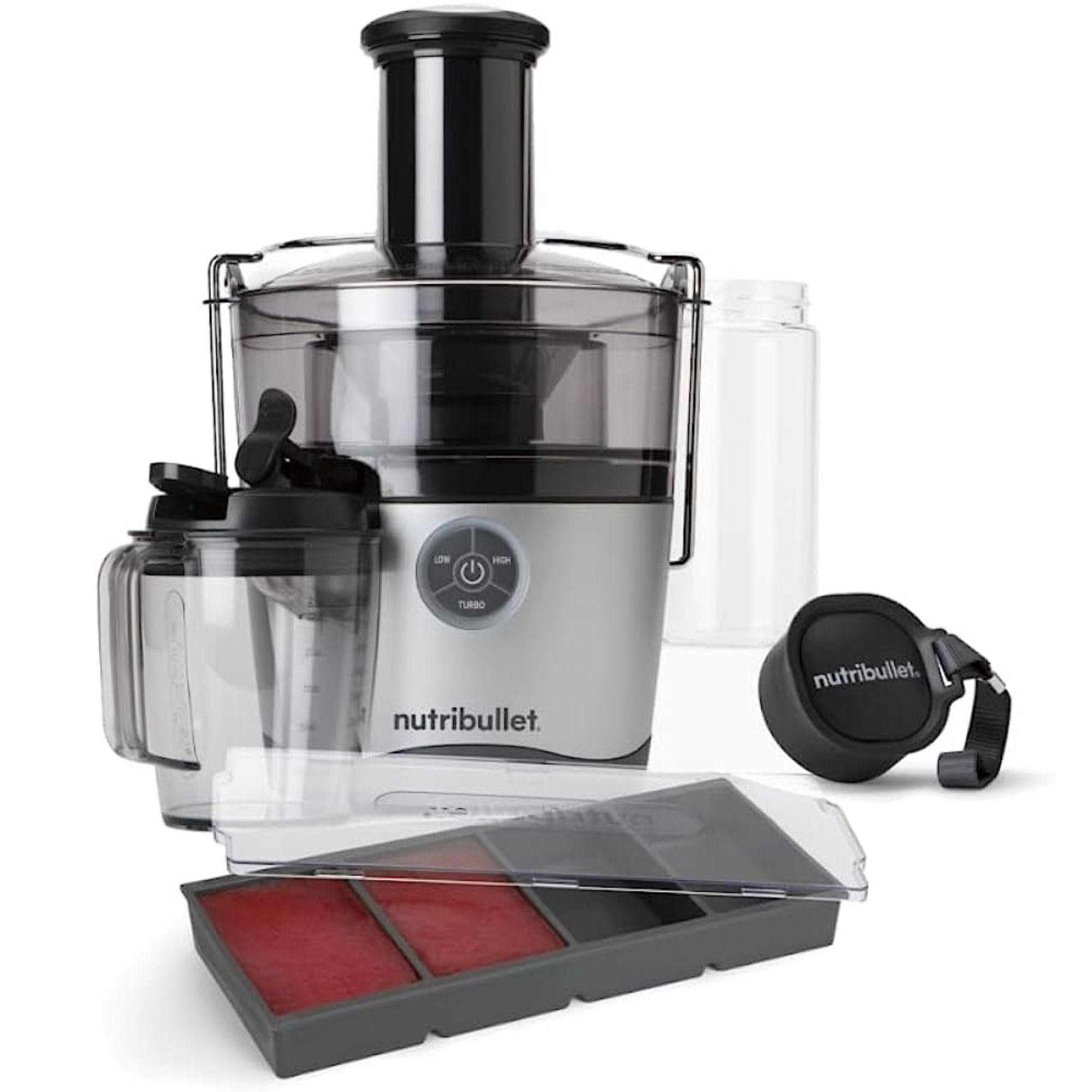
Of all the centrifugal juicers we've tested, this one is by far the best. It's reasonably priced with a large capacity and lots of useful accessories.
You can find more detail in our NutriBullet Juicer Pro review.
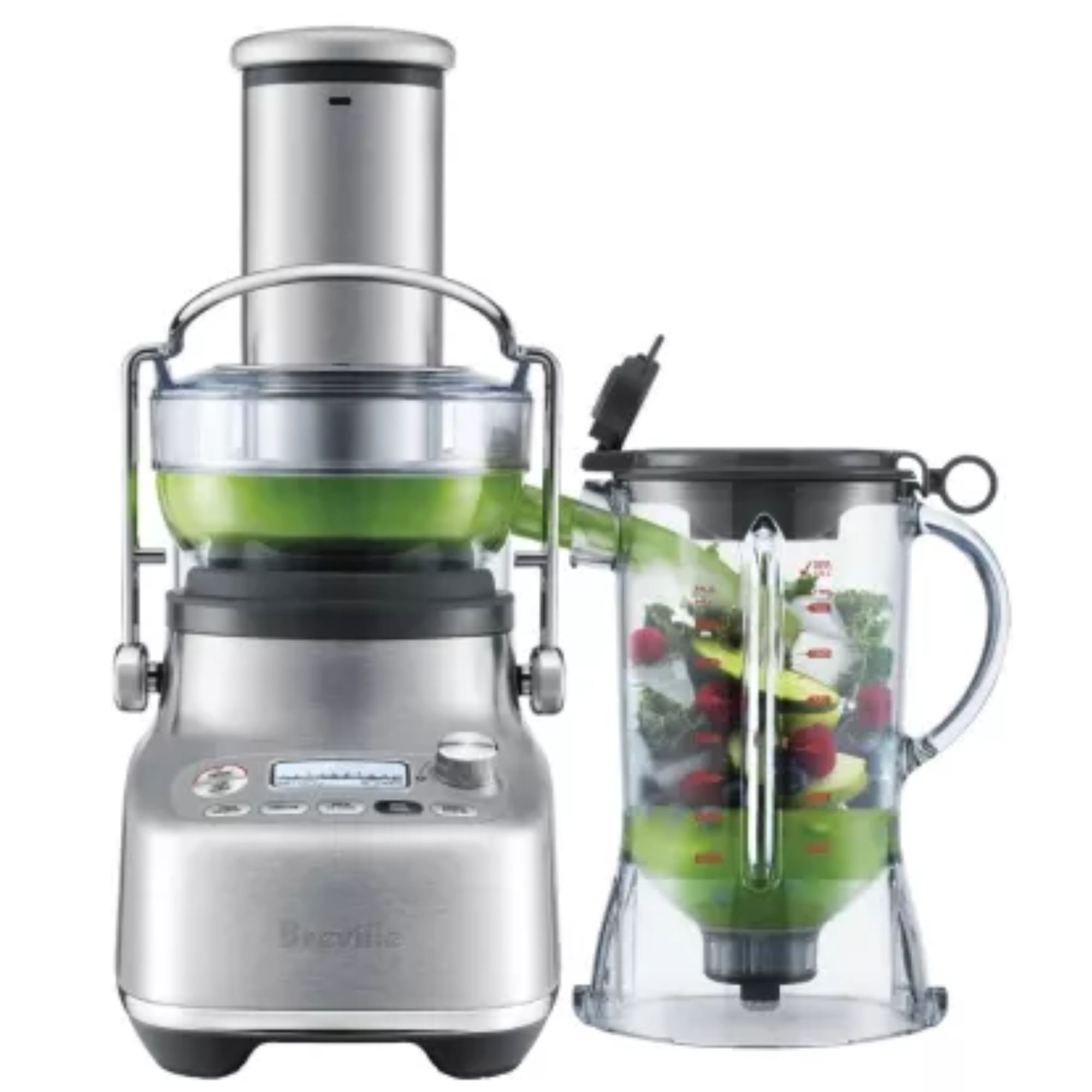
This doubles up as a blender and a juicer. It's powerful, has excellent extraction (considering it's a centrifugal juicer), and you won't need to prep your fruit.
You can find more detail in our Breville The 3X Bluicer review.
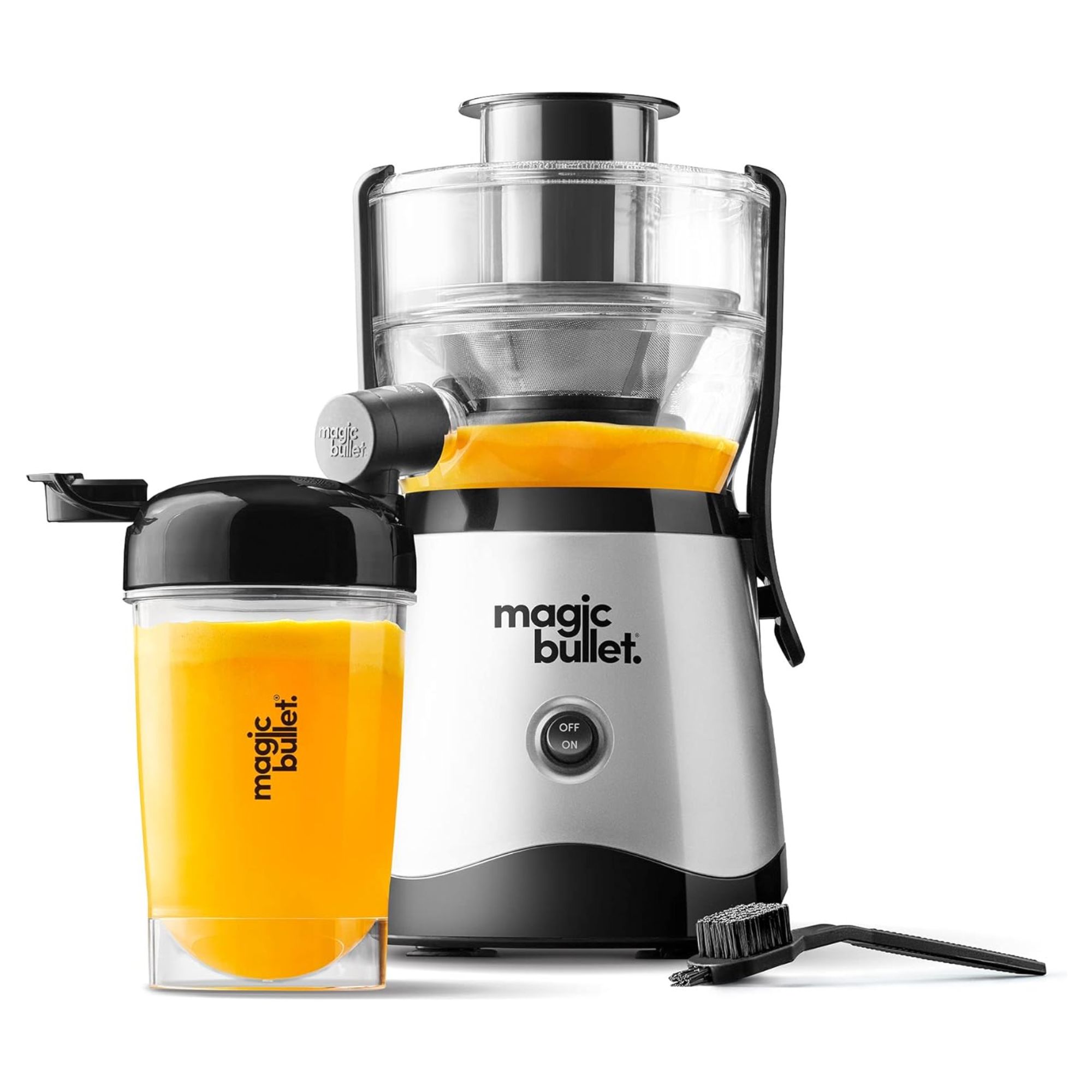
If you don't want to spend more than $50 on a juicer, this is the one for you. It's tiny, speedy, and can make some good (if not a little foamy) juices.
There's more information in our full Magic Bullet Mini Juicer review
What are the benefits of a centrifugal juicer?
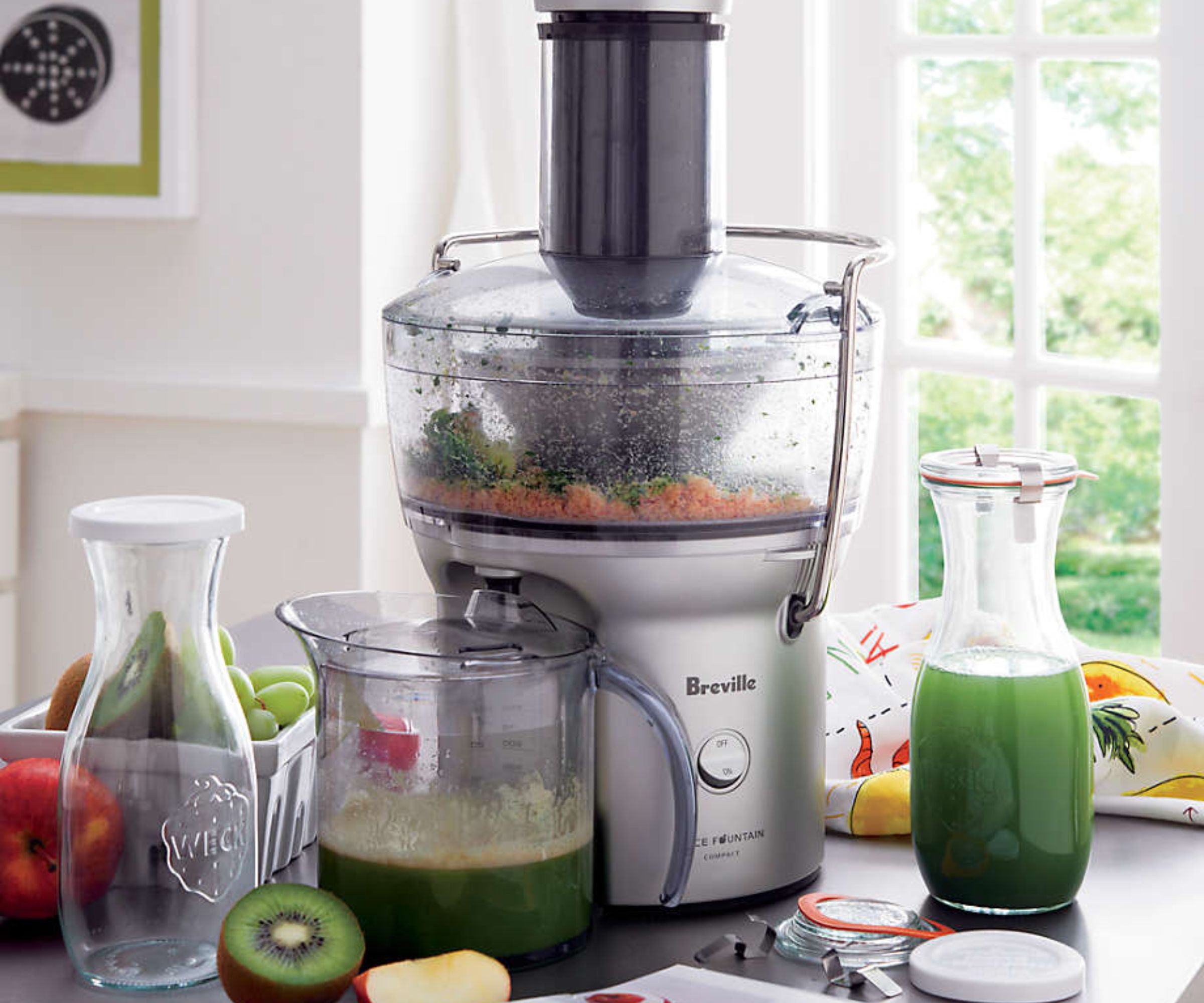
Centrifugal juicers, also known as fast juicers, are a popular option amongst those new to juicing or on a budget for plenty of reasons. First, most of them come in at under $200, which makes centrifugal juicers the cheapest model of the most popular ones. They're also well-suited to those who lead busy lives. You don't often need to prep your ingredients and chop them into small chunks and then the juicing process is quick. Even better, they're easy to clean. Centrifugal juicers normally collect the pulp, so you can put it straight into the compost too.
Design expertise in your inbox – from inspiring decorating ideas and beautiful celebrity homes to practical gardening advice and shopping round-ups.
Lisa Richards, nutritionist and author says that 'whilst centrifugal juicers operate at higher speeds, which can generate heat and potentially reduce some nutrient levels, they still provide a significant amount of vitamins and minerals essential for a healthy diet. The quick processing time ensures that users can quickly enjoy fresh juice, which is particularly beneficial for those looking to increase their intake of fruits and vegetables.
Despite the minor nutrient loss due to oxidation, the ease of use and efficiency of centrifugal juicers make them a practical choice for enhancing daily nutritional intake.'
How do centrifugal juicers compare to other models?
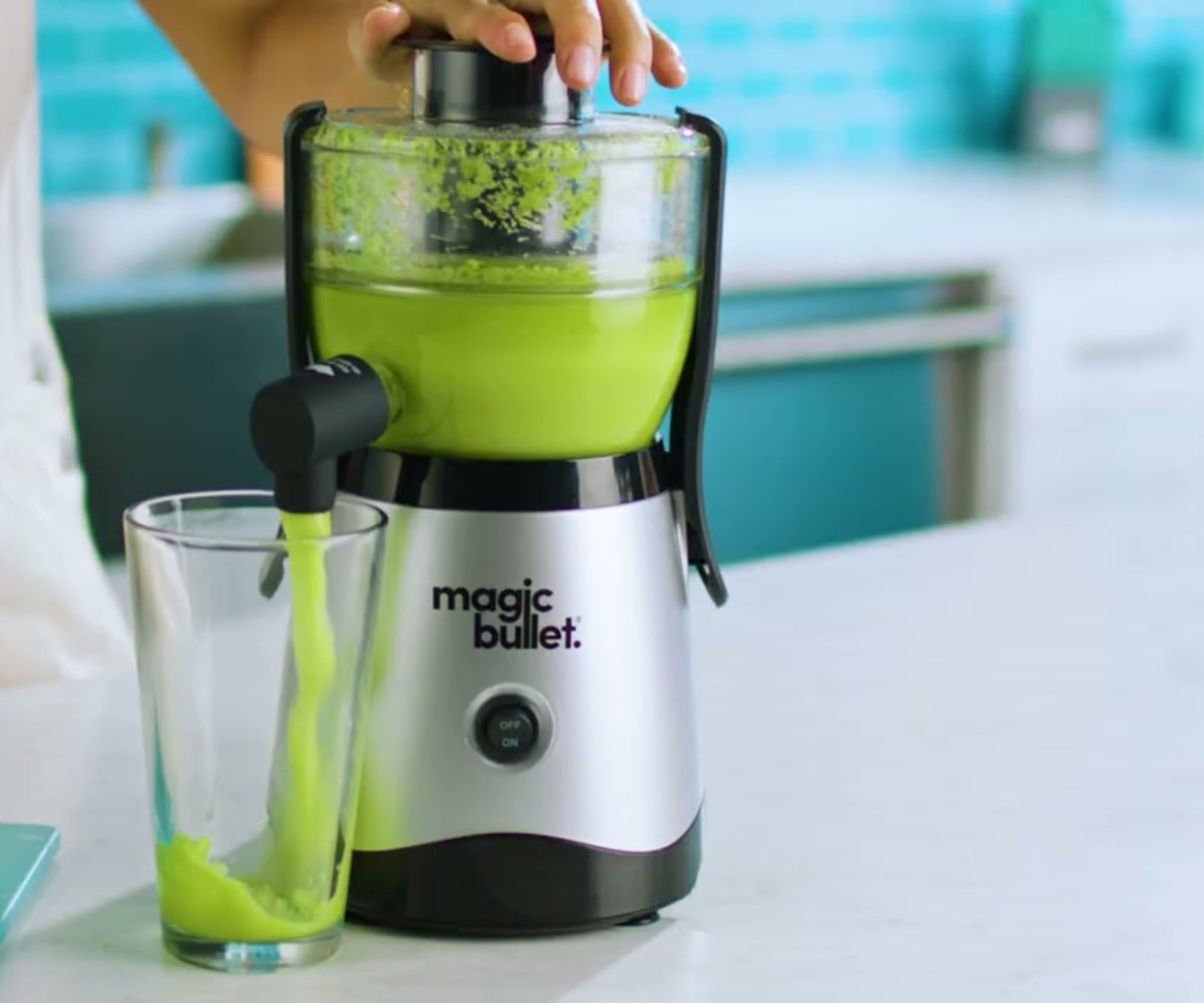
Centrifugal juicers are popular and easy to use, but they aren't without their flaws. Generally, centrifugal juicers create a lot more heat and noise in the process of juicing. Alongside heating the juice, the centrifugal method will add oxygen into your juice, which could cause oxidation. This will shorten the shelf life and might leave you with frothy juice.
Masticating juicers are the next step up in terms of price. Whilst they are more expensive and tricky to clean, they don't heat up or oxidize juice like centrifugal juicers do, meaning that your juice will last for longer. You'll also be able to extract more nutrients from them.
The next step up again is twin gear juicers. These are even more expensive with even more washing up to do. However, they extract the most juice with the fewest drawbacks, aside from the price.
FAQs

If you prioritize speed and convenience, you'll love centrifugal juicers. Luckily, there are plenty of brands who make excellent centrifugal juicers for really reasonable prices too.
FAQs
What is the difference between a centrifugal and masticating juicer?
Both make juice, but in very different ways. Centrifugal juicers spin and chop ingredients, but masticating juicers grind and crush them. You'll get more juice and nutrients from a masticating juicer, but you'll have to spend more money too.
Do centrifugal juicers destroy nutrients?
It's a topic of contention. Whilst the heat created in centrifugal juicers can mean that your juices don't last as long, some nutritionists say that warming the juice can speed up how well it diffuses into your bloodstream.

Laura is our eCommerce editor. As a fully qualified barista, she's our expert in all things coffee and has tested over thirty of the best coffee makers on the market. She has also interviewed Q-Graders and world-leading experts in the coffee industry, so has an intimate knowledge of all things coffee. Before joining Homes & Gardens, she studied English at Oxford University. Whilst studying, she trained as a master perfumer and worked in the luxury fragrance industry for five years. Her collection of home fragrance is extensive and she's met and interviewed five of the world's finest perfumers (also known as 'noses'). As a result of this expansive fragrance knowledge, she always puts quality and style over quantity and fads. Laura looks for products which have been designed simply and with thoughtful finishes.